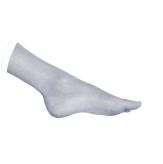
Back pain is a common complaint that many of us will experience at some point in our life. Current prevalence is thought to be 46.5% and can range from single sharp pain to a chronic pain that impedes or ability to do day-to-day tasks. While pain a burden on our bodies, what are the economic burdens that affect the sufferer, the economy and the country?
The Person
A person working full-time suffering from back pain is likely to take 13.3 days off per year. A sufferer could potentially lose £1,468 (based upon an average salary of £26,500). Many people working full time under a contract will have health coverage for time off.
However, shift workers are the greatest risk of losing out. While many shift workers’ contracts offer paid holidays, sick pay is less likely offered. These work scenarios mean that if you do not work you do not get paid. This will particularly hit younger people as they tend to work shift patterns (1.89million workdays were lost for people aged 25-34 due to sickness).
5.6% of the population are thought to have chronic back pain. This means that their pain is causing them severe disability and distress. As obesity and sedentary lifestyles increase, the financial difficulty will likely increase too.
The Economy
According to the HSE, the UK has lost over 9.46 million workdays due to musculoskeletal problems. Of those, 2.96 million were affecting the back. This averages out to 13.3 days lost per case.
These absences are brutalising British businesses that are costing businesses, on average, £168.05 in statutory sick pay. In total, this adds up to £836million cost for British businesses.
The Country
When a person is taking time off to recover from back pain, the days lost will result in a lower tax revenue for the state, increased costs to the NHS and, in serious pain, increased welfare spending.
With 13.3 work days being taken off, the government will set to lose tax receipts for the days lost to back pain. On average, the total loss of earnings for last year was £1bn. This means that this was not taxed. On average, the treasury may have lost up to £260million.
Many people who suffer from back pain seek out medical help to cope/treat the problem. This has a direct cost to the NHS and private healthcare providers. Back pain accounted for 4.6 million GP appointments, totalling the total time of 793 GPs at a cost of £69million.
Treatment for back pain, such as physiotherapy and surgery, is thought to cost £500million annually. However, indirect costs to the health budget are set to be much larger. It is thought that 22% (£12.3bn) of the entire budget for the UK healthcare budget is spent in total for back pain. This will include the direct cost of consultation and treatment but will account for acute pain turning to chronic, medication, surgery, recovery, staff costs, among others.
On top of that, for those suffering from chronic pain to the point of disability. This means they will be unable to work and may depend on welfare for financial support in the form of disability living allowance. Current Disability Living Allowance is costing the government £13.2bn per year. Over 3.5million people claim DLA, of these 135,000 are to people with chronic back pain.
What Can Be Done To Prevent Financial Burden During Back Pain?
For individuals who suffer, the best method to prevent becoming financially burdened through back pain is to prevent it from developing. Learning how to have a good posture, correct lifting technique, right footwear, correct sitting position along with regular exercise is not only preventative but is paramount in treating back pain. More information can be found here.
If you have been out of work for more than four days, you are able to claim statutory sick pay (SSP) up to a maximum for 28 weeks. This pays £88.45 a week and is paid by your employer. This should help ease some of the financial woes. More information can be found here.
For companies, ensure that your employees are fully supported while at their desks. Make sure that their chairs offer lumbar support and have a range of motion. This avoids repeating muscle stress on the lower and upper spine while encouraging movement. Also, ensure that your employees take time off to recover after an injury or back pain episode. This will ensure they aren’t taken ill for a longer period in the future. It is also wise to encourage employees to avoid presenteeism as these can severely affect their wellbeing.
For countries, much like individuals and companies, investing in preventative measures will cut costs. Educational campaigns, similar to Change 4 Life, will ultimately reduce the number of back pain complaints. As a part of the health and safety initiative, new laws have taken steps to prevent back injury and pain, such as the HSE Seating at Work Legislation (HSG57). Further laws to tackle businesses failing these standards will further reduce the number of sufferers.
If you suffer from back pain then get in touch with one of our specialists today. Contact us now.









